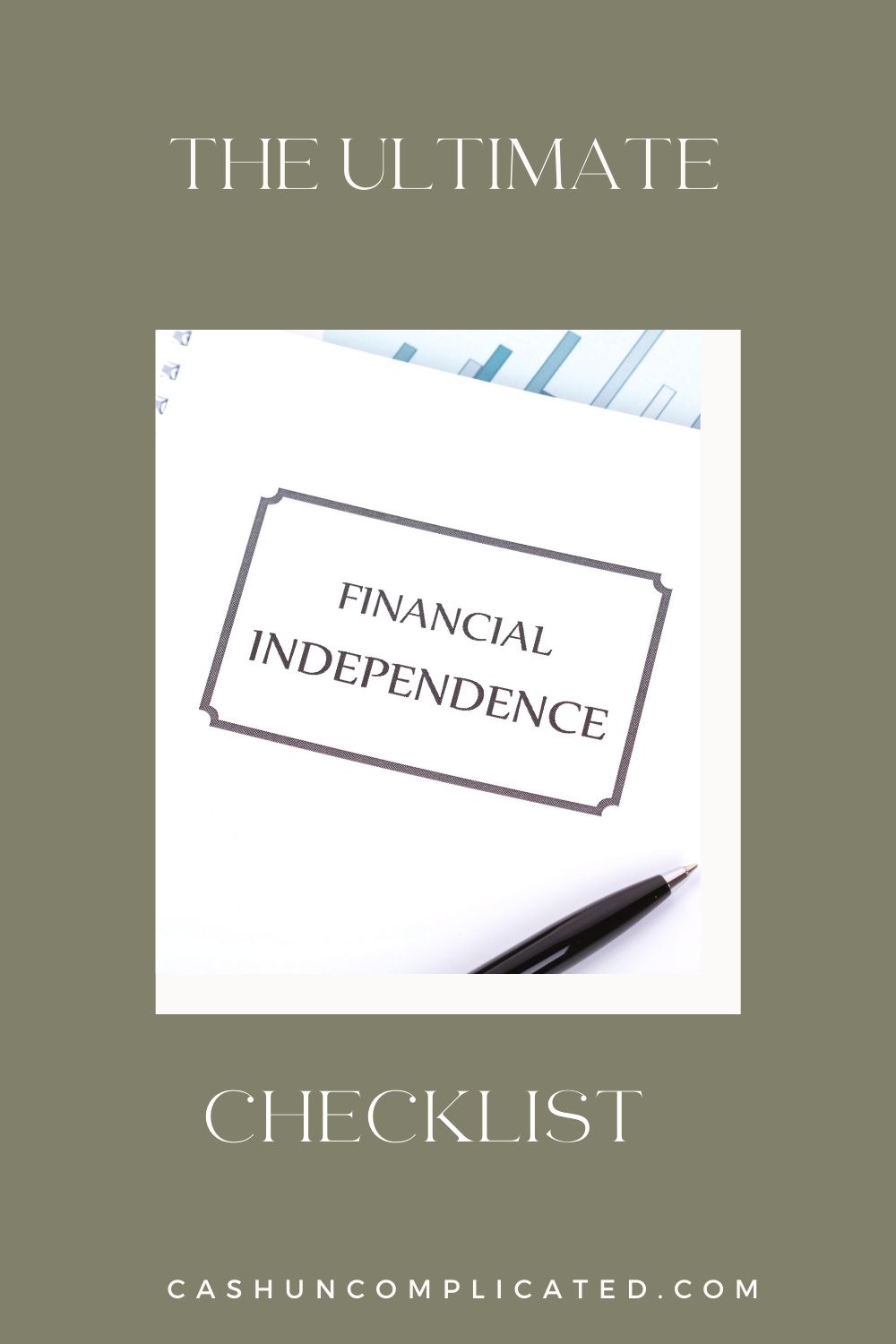There are lots of things in life to be stressed about. Personal issues, family dynamics, career, and of course money/personal finances. Obviously there’s no way to completely eliminate all stress, but there are ways to reduce it to healthy levels. This post will focus specifically on ways to relieve money stress.
What is Money Stress?
Money stress doesn’t just pertain to people who don’t have any money. Money stress can impact anyone, and everyone. To put it simply, money stress is feelings of anxiety, and worry specifically around money.
Financial concerns can impact a billionaire concerned with her next big acquisition, a twenty-something fresh out of college with minimal job skills, a middle-aged person with average savings, and a variety of other people. Money stress knows no boundaries and can impact people differently across various time periods of their lives.
Book Recommendation: The Psychology of Money
Money Stress and Your Health
The reason for this post is that stressing about personal finances is a big deal to your health. A certain amount of stress is natural, but when it starts to transition to high levels of stress, anxiety, and worry–it can become a problem. Examples include:
- Headaches
- Heart attack and stroke
- Skin and hair problems
- Lack of energy
- Depression
SOURCE: Stress Symptoms
If we can relieve money stress even a little bit, there are numerous health benefits to be captured.
How to Relieve Money Stress and Use This List
There are countless ways to relieve money stress. This list will capture some of the ways, but there’s no way a list like this can be completely comprehensive. I’m sure most of you have your own strategies to relieve not only money stress, but stress in general.
This list was designed to use in any order at any time. It’s a list of things that have worked for me and others I’ve talked to that can help relieve money stress.
Number 1: Develop a Growth Mindset
Mindset is everything. Whether it pertains to your health, career, family, or personal finances, it’s critical to have the right mindset. For me, that’s a growth mindset. A growth mindset means you always are seeking to learn and get better. A person with a growth mindset understands that mistakes will be made, but it’s part of the process.
Many people grew up with the idea that it was bad to make mistakes and the closer we could get to perfect, the better. A growth mindset brings the idea that it’s ok to make mistakes because that is how we learn and get better. Mistakes are a stepping-stone rather than a crater we fall into.
When a growth mindset is developed, it gives us permission to make mistakes and learn. Which means we can try new things, take positive risks, and keep getting better. This directly relates to personal finance as it’s natural and normal to make mistakes with money. But when those mistakes are turned into building blocks, your money situation is bound to improve. Having this mindset alone is a great way to relieve money stress.
Book Recommendation: Mindset: The New Psychology of Success
Number 2: Get Clear on Your Values
If you don’t know what you want, life gets confusing and stressful. An easy way to reduce money stress is to clearly define what you want. Once your values are clear, there is a roadmap to getting what you desire.
This includes financial goals. For example, if you want to live in a house in the suburbs where the median price point is $800,000 you’ve got a good idea of how much money you’ll need to be able to afford it. But if you have no clue about where you want to live, you can’t possibly know how much that is going to cost you.
There’s a stress to not knowing what you want because you’re always in limbo. Once your values are clear, it pulls you out of limbo and into clearly defined values.
Some questions to ask yourself:
- What is it that I value?
- Why do I value certain things above others?
- Are there certain things I’m currently spending money on that I don’t value?
Number 3: Take Stock of Your Money
Number three on the list of ways to relieve money stress is to take stock of your money. To state the obvious, it’s critical to know where you are. Many people worry about their money situation only to find out they are in a really good position and don’t have as much to worry about as they thought.
For example, a family of four who comfortably lives off $50,000 per year and has over half a million dollars invested, along with a six-month emergency fund. While this family is not rich, they are comfortable and have a sizable cushion to fall back on if hard times hit. Their financial position isn’t bulletproof, but it’s in good shape.
Number 4: Make a Plan and Set Goals Based on Your Values
It’s not uncommon for people to see what their friends and neighbors are doing financially and start to get stressed about money. The neighbor pulls up in a new car, your best friend just bought a house in the best part of town, and the family two doors down just added a second story to their already large house. I write about this phenomenon in my book Cash Uncomplicated (Chapter 3: Don’t Compare Yourself to the Joneses, Because the Joneses Might Be Broke)
None of this has any bearing on what you do or the actions you should take. It’s all noise. Instead, identify your values and make a plan based on your own values. If you value adding on to your house, make a plan to get there. Or if you want a new car, make a plan to get there and set the appropriate goals.
If you don’t want those things though, make plans for what you do want. Maybe instead of adding a second story to your house, you want to invest in index funds or a rental property. Make plans and set goals to make your dreams happen.
Number 5: Take One Action
One of the hardest things to do is start. Even though we have a big goal and an idea of what we want, it’s so far down the road that it’s almost impossible to see. That’s when a lot of people give up and stop trying. The remedy to this is to take one action.
Taking the first action that comes to mind that will help you make progress towards what you want. Since this is a post about how to relieve money stress, think about something financially stressful in your life. Even though the financial stressor might take years to alleviate, there is an action you can take today to help relieve the money stress.
For example, if you are $50,000 in credit card debt, that’s probably going to take longer than a year to pay off. The end is not exactly in close sight. But there’s an action that can be taken. Here are a few ideas:
- Call the credit card company to see about lowering your interest rate
- Schedule an extra payment
- Read a book or blog posts about how to pay off credit card debt
- Make a budget that will allow you to pay one hundred dollars extra on your credit card debt every month
None of these actions are going to immediately get you out of the credit card debt, but they are all progress. It feels good to make progress and momentum builds to make further progress.
Number 6: Don’t Get Overwhelmed
It’s easy to get overwhelmed with money. There’s a ton of information available, much of it that is conflicting. It’s natural to want to throw your hands up and quit.
Take some of the tips outlined in this post and use them to avoid feelings of being overwhelmed. For example, if you don’t know where to begin, just take one action (tip number 5). Or if you notice many of your friends and family seems to be getting ahead of you financially, think about your values and goals (tip number 4).
Number 7: Get Out of Consumer Debt
Very few things are as financially stressful as consumer debt. It’s starting every month in a negative position where the creditors seemingly need to be paid as soon as your paycheck hits your bank account. Consumer debt is suffocating and can seem never ending.
The single act of getting out of consumer debt will greatly relive money stress. Once consumer debt is paid off, the monthly reoccurring payments are gone. As are the high interest rates and the stress of looking at seemingly insurmountable balances.
Related:
Number 8: Get Educated
There is pain in not knowing or understanding what is going on with your personal finances. Uncertainty equals stress. One of the best ways to eliminate or minimize uncertainty is to get education. Books, podcasts, and speaking with wise people are all examples of education.
Education takes you out of the uncertainty and into the world of knowledge. Once there’s an understanding of what is happening and how to improve, a whole new set of doors opens.
For example, someone who isn’t doing well managing their money and doesn’t understand why. They want to do better but just aren’t executing. Once they acquire some knowledge they can begin developing and executing a plan. If they are in consumer debt, they can develop a strategy to get out of it. Or if they want to invest more, they can develop a plan to make that happen by automating their money and dollar cost averaging.
Number 9: Don’t Be Afraid to Seek Professional Help
Number nine on the list of how to relieve money stress is to seek professional help. This kind of help doesn’t have to come in the form of an expensive financial planner with high fees. It can be your CPA, a financial coach, a fee-only financial planner, a mentor, or a variety of other experts.
The key is to find someone who has been successful with their own personal finances with a proven track record of helping others. Leveraging a professional with this level of expertise can take away years of stress and struggle because they have been there, done that-and can help you avoid the pitfalls.
Number 10: Track Your Money
Tracking your money is very powerful and a great way to relieve money stress. So many people live month to month not knowing or understanding where their money is going. They want to do well financially, but things just aren’t adding up.
Tracking your money is the cure for this. Tracking provides clarity because you can clearly see where the money is going. $30 per month to unused magazine subscriptions, $320 per month to takeout, $75 for a gym membership you use once or twice a month. It’s one thing to have it in the back of your mind. It’s a totally different thing to see it in writing–there’s a whole new level of clarity reached when it’s right in front of you.
Once you have this information, the only thing left to do is take action. In this example, it would be eliminating the subscription, reducing takeout, and eliminating the gym membership. Just like that hundreds of dollars back into your pocket and even more stress taken away.
Number 11: Create a Budget
Budgets get a bad rap. They’re seen as boring, cumbersome, and constraining. I see them as a great way to relieve money stress. Budgets eliminate the unknown because once you have a budget, you understand exactly how much you have to invest, save, and live on.
I’m the type of person who would much rather know where I am than have to guess. Budgeting takes away the guess work and gives you a roadmap of what you have. It’s reassuring to know if you spend a few hundred here, a few hundred there, that you won’t be over budget. That allows for guilt and worry-free spending.
On the other hand, if someone has no clue how much they’re able to invest, save, and spend–it creates a high stress level. Even though it might temporarily feel good to skip the work of putting together a budget (actually not that much work), they ultimately help to relieve money stress.
Related: Value-Based Spending: How to Create a Budget Around What You Value
Number 12: Develop Positive Coping Strategies
Number 12 on the list is more on the mental/mindset side. There are very few things in life that are 100 percent guarantees. Money is no different. There are lots of things that can go right and wrong with money. For example:
- Stock market fluctuations
- Hot and cold real estate markets
- Unexpected, and costly emergencies
- Inflation
These are all things that impact the everyday person. The best we can do is understand nothing is guaranteed and that not everything will go perfectly to plan. Of course we can maximize our upside and minimize our downside, but there is never a guarantee.
That’s why coming in with this mindset allows us to do something about it. For me, that means a mindset shift of understanding things will go right and wrong, and then taking appropriate action if required. For example:
- If inflation keeps rising, buy assets that are good inflation hedges
- During periods of outrageous gas prices (like now), make sure to keep my car maintained to maximize fuel efficiency (such as keep tires inflated and minimize idling time)
- When stocks and other paper assets decrease in value, understand that there are peaks and valleys and to stay the course
Number 13: Get Support from Others
Getting support from others is a great tip not only to relieve money stress, but for any other area of life. Think about who you can talk to and who helps keep you rational. Who gives good advice and does well in their own lives. Those are your advisors and support.
Most people want to help–allow them that opportunity with you. If you’re needing support in an area, reach out to those people you trust and get yourself re-balanced. Or if you need advice, reach out to see how your trusted advisors would handle a situation. It’s easy to internalize and get into your own head, making problems seem worse than they really are. We all can use voices of reason.
Number 14: Live Your Regular Life
During times you are feeling stressed about money, try to live your regular life and continue to do fun things. There are moments of time when money doesn’t matter. Think about a time you took a two-hour hike in the forest, beach, or some other part of nature.
During that specific moment in time of taking the two-hour hike, it didn’t matter if you had ten million dollars or zero. Money, or lack thereof, didn’t change the trees, the waves, or the clouds in the sky. So the idea is to be in the moment and actually experience the experiences.
This is not to say money isn’t important. If it weren’t, I wouldn’t be writing about it. What I am saying is there are plenty of times to think and plan about money, but there are also moments in time where it really doesn’t matter for that specific time period. Enjoy those moments to the fullest.
Number 15: Avoid Temptations That De-Rail Your Plan
There are lots of temptations out there that can lead people to spend more money than they want. Candy and magazines at the checkout aisle, pop up ads online, sodas and sweets at the head of grocery store aisles, commercials promising low monthly payments on something you don’t need or want, etc.
These are all things that can de-rail your money plan. The purchases feel good at the time but actually end up causing more money stress. If it’s not something you need or highly value, avoid buying it.
Temptations are set up all around us to engage in impulse buying. Be intentional with your money and avoid these obstacles.
Number 16: Expect the Unexpected
A great way to relieve money stress is to take some pressure off and expect the unexpected. Things are going to happen. The car is going to break, the hot water heater is going to go out, and the faucet is going to leak now and then.
These things are all bound to happen–it’s not a matter of if, but when. So prepare and save for the unexpected by keeping an emergency fund large enough to pay for the unexpected. Then when it happens it’s not going to be a huge shock or become a financial crisis.
Number 17: Remember That Financial Success Isn’t a Straight Line
There’s an idea that success–whether it be financial or something else, comes in a predictable and straight line. I say this because it’s what I used to think, and have come to realize is not true.
Success often comes in an order similar to this:
- No progress
- Looks like no progress
- Slight progress
- Back to looking like no progress
- Big progress
- Setback
- Exponential progress
Success with money looks the exact same way. Getting out of debt and grinding to save a little every month is slow progress. It can be frustrating because it doesn’t seem like you’re moving at all. Then a little more progress is made and eventually you begin to experience exponential growth, or compounding.
So take the pressure off yourself and remember the journey can be a little rocky. There are going to be ups and downs, highs and lows, and a lot in the middle. Keep following the principles and moving forward, and know that success will come.
Conclusion
Money can be stressful. It can take a toll on your personal health and relationships if you let it. Fortunately, there are many ways to relieve money stress, many of which were outlined in this post.
It’s important to remember that money itself is not stressful, it’s our response and behavior towards it that is. That’s why it’s important to develop and implement money stress-busting strategies to combat it.
What strategies do you use to relieve money stress?













